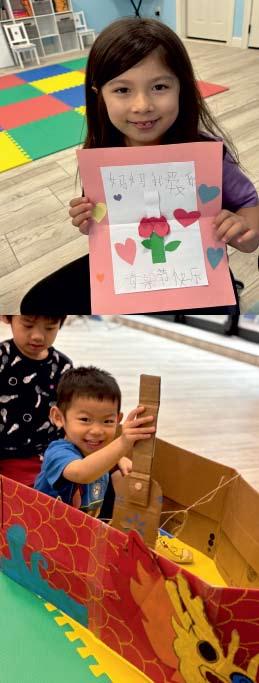
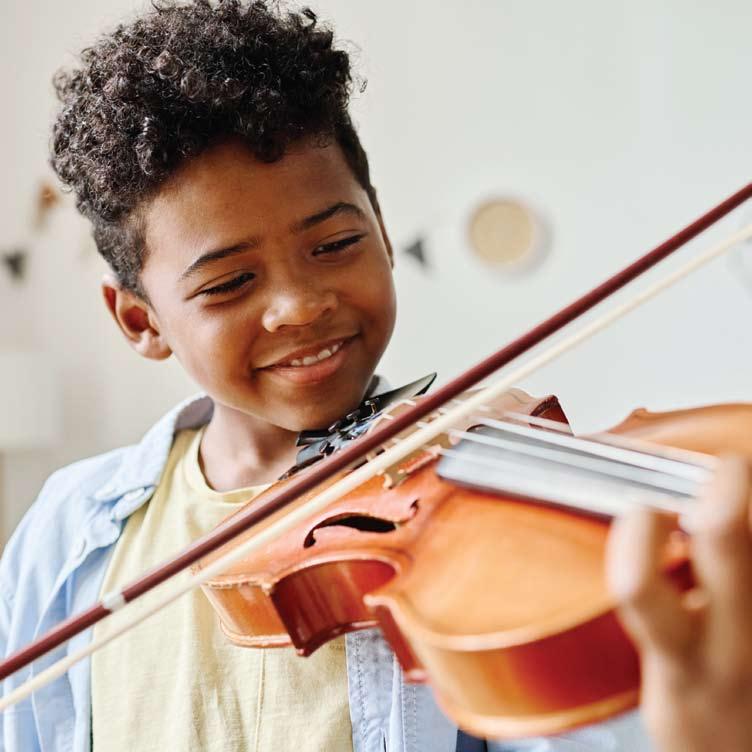






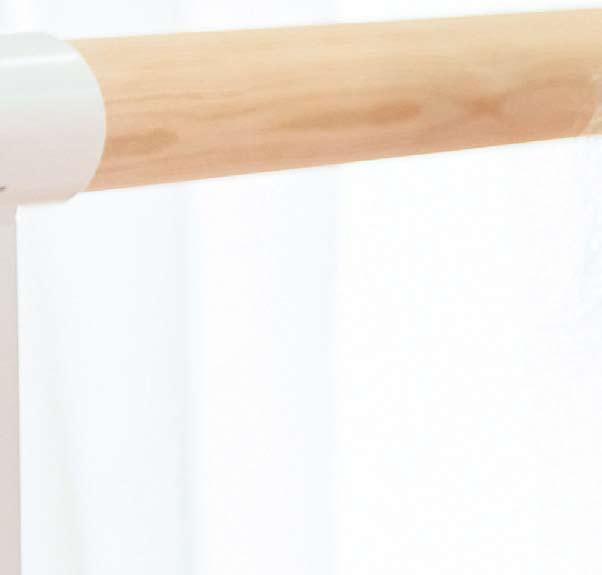
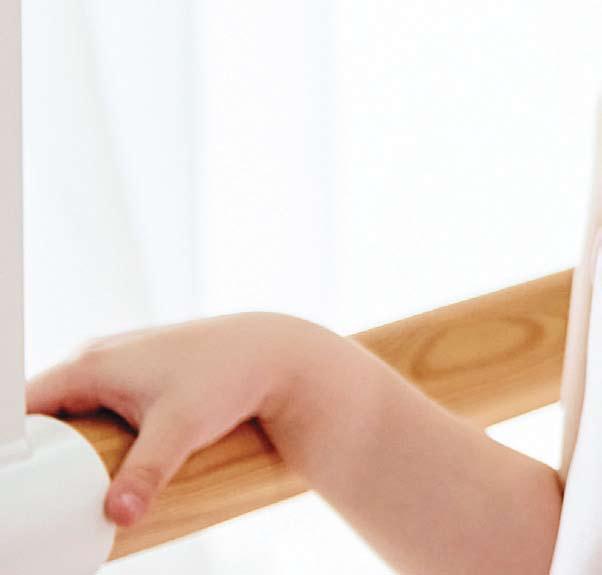


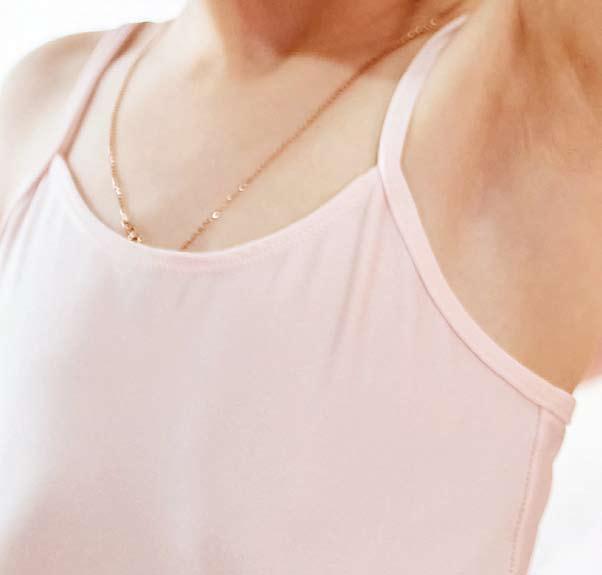





BY DANIELLE RAMOS
Veteran parents know that the backto-school hustle isn’t solely about academics. After-school activities can be just as stressful to navigate. Sports, dance, art, STEM clubs…the options are endless, and figuring out which ones will truly suit your child can feel overwhelming. How do you know what will click with their personality? And when is it better to gently encourage them to try something new versus letting them enjoy some downtime?
We spoke with Dr. Irina Gorelik, Psy.D., a licensed psychologist and parent coach
based in Brooklyn, to get her take on the subject.
Dr. Gorelik shares practical, developmentally informed tips for matching kids with after-school programs that help them thrive, whether they’re shy, high-energy, creative, or just need some unstructured time.
How can parents tell what kind of afterschool program will click with their kid’s personality?
Before considering personality, it is essential to ask yourself if the child is ready developmentally. Under age three, kids are
usually not yet developmentally ready for structured activities and can benefit more from programs such as Mommy-and-Me or exploratory/sensory programs that are openended. Once a child is enrolled in school, considering some personality/temperamentbased factors can be helpful to see what may be a good fit.
First, it is important to observe your child. Do they gravitate towards active movement (ball play, running, dancing, music) or quiet focusing? Do they prefer solo exploration or enjoy the energy of being in a group? Do they thrive in predictable play (gravitate towards the same types of play) or

lean towards novel things?
The answers to these questions may help you decide if the child would thrive more in open-ended or structured activities, or high-energy vs. calm. If you are not sure, that is okay! If you have some activities in mind, you can observe a few different types of classes with your child. Look to see if your child wants to join or looks overstimulated and hesitant. Of course, with some temperaments, there may be initial hesitation.
If your child is shy or tends to shy away from social situations, what kinds of after-school programs can help them build confidence without feeling overwhelmed?
For children who are more on the quiet side, or temperament-wise on the slowerto-warm-up side, it may be tempting to expose them to as much socialization as possible for practice. While there are ways in which practice can be helpful and necessary, throwing a child like this into many highenergy activities can backfire. These children often need a gradual approach, such as lowpressure settings that are somewhat openended, where kids can go at their own pace.
Another consideration is whether the class/activity and instructor help kids focus on their growth and development, and process-based learning, vs. one based solely on competition and winning/losing.
Things to look out for:
• Small groups of 6-10 kids
• A consistent instructor whom the child can get used to
• Less focus on audiences and performances early on
• Permission to observe one or two classes before deciding to join
• Routine of what to expect in the class
Depending on the child’s interests, this might be a class with open-ended projects or crafts, such as art or pottery, and music groups. If you are looking for an activity with movement, consider yoga for kids, martial arts (a class focused on self-improvement and growth-based mindset, less on competition), small group swim lessons, and improv-based classes in movement, dance, or drama.
What after-school options work best for high-energy kids or those with trouble sitting still?
Does your child gravitate towards active movement or quiet focusing? Do they prefer solo exploration or enjoy the energy of being in a group? Do they thrive in predictable play or lean towards novel things?
For high-energy kids, it is helpful to look for a program that allows them to channel that energy in a purposeful way that they can also enjoy! The choices often are between more structured programs vs. less structured programs, and each can have benefits depending on what you are looking for and the child’s personality.
It is also important to meet the coach to ensure that you align with their style. Coaches who help kids build confidence by focusing on their individual growth can be significant in keeping kids engaged and building their confidence in the skills.
Examples of more open-ended high-energy programs:
• Parkour
• Obstacle courses
• Nature programs
For more skill-building and structured classes:
• Sport-based extracurriculars
• Martial arts: discipline/focus and high movement
For creative or artsy kids who don’t always love rules or structure, how can parents find programs that keep them engaged without stifling their imagination?
For kids who don’t always do well with structure but are creative, it may be helpful to find programs and activities that are more open-ended.
These programs have guidance, but the child has a sense of agency over the finished product. When observing such programs, it may be helpful to notice if the instructor can help children focus more on process and curiosity versus “doing a good job” or completing the task accurately.
Some ideas:
• Maker spaces
• Pottery/clay building
• Open studio art
• Sensory play programs
• Drama/movement studios with a focus on improv
And what if your kid just flat-out doesn’t want to do any after-school activities? How do you know when to encourage them to try something new and when to give them downtime?
This is a great question! There is a lot of pressure to fill a schedule and keep kids occupied, especially if the child’s peer group is busy after school Monday through Friday. There is also often the added pressure of social media and parent influencers, where it usually seems that kids are always involved in soccer practice, dance, and every other imaginable activity, which can add to parental guilt of feeling that you are not doing enough. To relieve some of that pressure from a psychological and developmental perspective, I say that often, less is more when it comes to after-school activities.
While everyone’s circumstances, capacity, and schedules are unique, children do not always need to be occupied, and free time is critical to development across the board, especially for younger children. Downtime offers time to build creativity through independent play, builds autonomy and decision-making skills, and can help with self-regulation, as it offers time for quiet play.
Some things to consider when determining between allowing more downtime and a gentle push include energy levels when getting home, interest levels, socialization access, and level of physical activity.
Suppose a child shows interest in a particular activity or topic, does not have many days of the week when they are busy after school, is a bit socially isolated, and has not had experience with specific activities yet. In that case, it might be appropriate to give the gentle push.
A few things that might help:
• Offer to observe first or check it out together
• Try one-time activities, such as workshops or drop-in sessions, to gauge interest and fit
• Present it as “giving it a try” rather than a long-term commitment


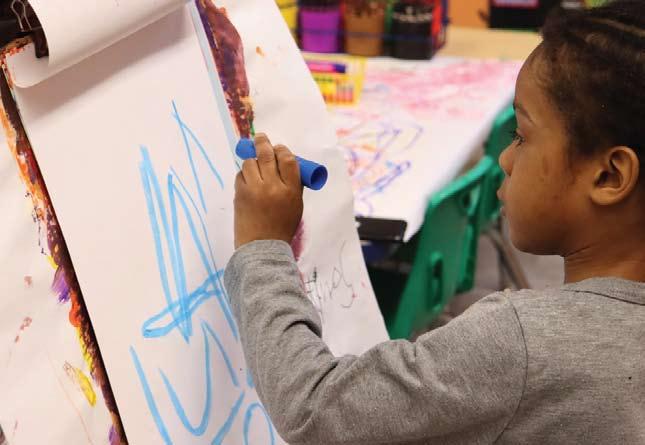










By Náosha GreGG
As back-to-school season arrives, you may consider enrolling your child in an after-school program. New York City just announced 40 new afterschool programs, opening 5,000 new spots for K-5 students citywide. According to a 2022 YouScience study, 75% of high school graduates feel moderately, slightly, or not at all prepared to make college or career decisions, while another study found that nearly 60% of parents felt their teenagers lacked essential life skills, such as knowing how to make the bed, clean a toilet, or vacuum a room, when they left home.
After-school programs can vary, but they are a great resource for young children and teenagers, and are a great way for your child to explore their interests and develop essential life skills that can assist them later in life. From cooking to woodshop, here are some after-school programs that are sure to instill life-long skills into your child.
What kid doesn’t like to get their hands dirty, especially when they can eat it after? Cooking classes are a great skill to embed in children. It is not only a great way to get creative and explore new flavors, but it can also open doors to learning about new cultures, increasing vegetable intake, and incorporating and practicing math and science skills through measurement and temperature gauging. A study from Tufts University found that 28% of Americans say they don’t know how to cook, while another study found that 54% of Americans admit they are not proficient in the kitchen. Cooking classes are an investment that will continuously serve your child and ensure they can prepare their own meals and produce independence while eating healthy.

Drowning is the leading cause of unintentional injury death for children ages 1 to 4. However, while considered a life skill, knowing how to swim is not as common among Americans as you would think
According to the American Red Cross, 54% of American adults either can’t swim or don’t have basic swimming skills. Swim classes are not only a great way to stay physically fit and gain muscle strength, but also to prevent drowning.
Some additional benefits of swim classes include improved cardiovascular health, enhanced endurance and muscle strength, and improved posture, making it a great after-school program.
Creative expression is key for young children and adults as they progress into the real world. Dance classes provide many health benefits, including improved cognitive development by learning complex and different dance combinations, improved flexibility, and boosted confidence.
In fact, dance has such beneficial effects on the brain that it is now being used to treat
people with Parkinson’s disease, according to a recent Harvard study. Dance as an after-school program is also a great way to and to build discipline and explore the various genres from modern to ballet and contemporary.
While some may consider woodshop classes outdated or old school, they still have many benefits as an after-school program. They encourage creativity and problem-solving, and can lead to lucrative careers down the road, such as carpentry. Completing a project, such as a stool or chair, also provides a sense of accomplishment and integrates math and science for brain enrichment.
Chess classes are a great after-school program to keep your child engaged and sharpen critical thinking skills. Complex situations are grounds for strategic thinking as players decide what move to make next, and teach discipline and sportsman-like behavior. It can help your child later down the line when they need to use critical thinking to make deductions.




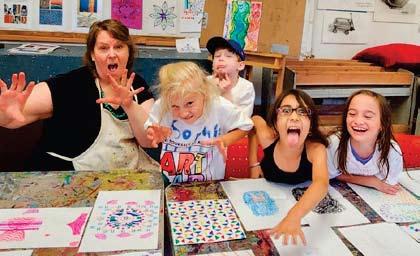




Fall Classes Begin September 14
We offer weekly art classes for all ages (3 and up). Fine Arts, Applied Arts, & Photography classes available for adults too. Register online or call us for more info.
Sat, Sept 27, Golden Hour in the Garden, Art Lab’s 50th Anniversary Fundraiser
Join us for a night of light fare, drinks, raffles, 50/50, silent auction, and live entertainment, Tickets are $125 a person. Buy your ticket online or call for more info.
Special Programs Available




Open House: Saturday, Sept 13, 11 AM - 3 PM
Demo classes & workshops for all ages. No School Daze: Monday, October 13, AM: 10 AM - 11:30 AM PM: 12 PM - 1:30 PM Art Workshops for ages 6-12 Halloweekend Workshops:





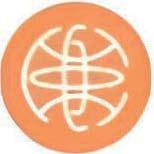











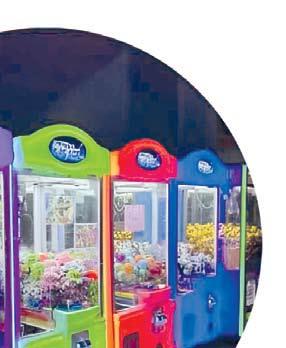




BY MARINA DUNBAR
One of the best things about the backto-school season is that it’s also the back-to-extracurricular activities season! That means arts, clubs, and athletics are in full swing to ease the pressure of academics. And with this year’s unforgettable Summer Olympics, there has undoubtedly been a surge in aspiring young athletes going for the gold.
But how do you know when your child is ready to play a sport? And how do you know what sport is prepared for them? We’ve created a guide to help parents understand what sports best fit their kid, so that your little future Olympian will remember to credit you for their early start.
Ages 2 to 5
Walking is the first real sport that babies learn. Once that fundamental skill is developed, the more complex motor functions begin kicking in. Not only is a love of exploration and discovery cultivated during this time, but so is muscle memory, a critical part of all athletics. Kids at this age should be encouraged to participate in activities that help progress the development of this crucial function.
Sports that facilitate freedom in play and incentivize children to learn repetitive movements are ideal for inspiring early athletes. Some examples of early childhood sports are:
• Racing, including simple obstacle courses and mazes
• Jumping rope
• Dancing
• Basic gymnastics
• Throwing and catching a ball
• Swimming
• Hopscotch
• Riding a bicycle or tricycle
These activities help children understand (both in mind and body) that repeating a movement over and over again makes it easier to perform. While it’s too early for team sports, having your child practice these activities in groups can help them get comfortable learning alongside their peers.
Ages 6 to 10
Once the fundamentals of muscle memory are acquired, it’s time to focus on balance,

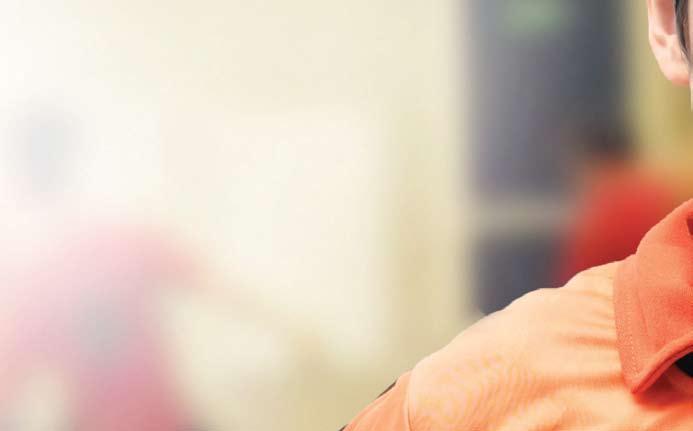

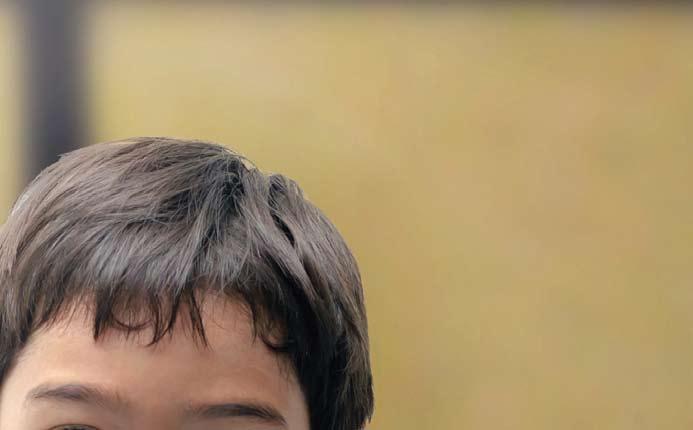


hand-eye coordination, and attention span. Parents can begin introducing sports with easy rules and basic gameplay strategy. When a child learns how to follow instructions, it’s a sign they’re ready for more complicated and collaborative sports such as:
• Baseball, softball
• Soccer
• Dance teams
• Martial arts
• Lap Swimming
• Roller skating and ice skating
These are all sports that build upon the foundation learned during earlier childhood activities. Pay close attention to what sort of environment your child likes to be in (indoors or outdoors? In water or on grass?) and help them push themselves to learn that environment even more.
It’s junior sports league time! This is around the age when your child will develop a stronger sense of teamwork, strategy, and sportsmanship. Of course, this also means a stronger drive towards competition. Cultivating a healthy sense of competitiveness is essential in children of this age group, but it can be a tricky balancing act. You want your kid to want to win, but you also want them to be able to lose graciously.
A helpful way to encourage healthy competition is to avoid always framing the conversation around winning and losing. Instead, remind your child that they’re playing because it’s fun and healthy, and it’s
still both of those things regardless of which side gets more points. Here are some friendly competitive sports:
• Football
• Basketball
• Volleyball
• Tennis
• Hockey
• Soccer
• Golf
• Competitive Swimming
If your child insists that winning is everything, remind them that every athlete who loves their sport deserves to win sometimes, which means you have to lose sometimes. After all, it’s not a competition if you win every time, right?
With so many sports to choose from, it can seem overwhelming to try picking the best fit for your child. But that’s why paying attention during those early motor skill stages is so important. Understanding the environment your child prefers and where their natural talents lie will give you a great idea of what activities they will enjoy and thrive in.
Do they constantly try balancing on the edge of the sidewalk? Try gymnastics and the balance beam. Do they like to make-believe they’re a superhero? Try martial arts. Do they love dancing around the living room with you? Encourage them to memorize a routine. The more they try, the more they discover what they love.



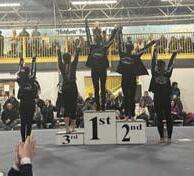













Master Curry Martial Arts
3896 Richmond Ave.
718-979-7087
mastercurry.com
Ignite your child’s passion and confidence with Master Curry Karate’s extraordinary programs. More than just another activity, it’s a transformative experience. This skilled instructor brings over 52 years of expertise, including 32 years of teaching in Staten Island. Discover Martial Arts’ essential life skills, boost coordination and strength, and empower self-defense abilities. Fuel your child’s enthusiasm for learning while building character.
Mathnasium of Richmond
3161 Amboy Road richmondny@mathnasium.com 718-887-6955
Mathnasium, founded in 2002, is a global math learning franchise with over 1,000 centers worldwide. Their program focuses on teaching math in a way that makes sense to each child. The Mathnasium Method™ uses personalized plans and fun, engaging instruction to create a supportive, enjoyable environment for all kids. When learning clicks for students, they build confidence, think critically, and begin to see that math can be enjoyable. Mathnasium proudly serves Staten Island kids and families.

Music and Method 15 Athena Place 917-715-6865
edmund@musicandmethod. com
musicandmethod.com
Music And Method was founded in 2002 and focuses on making music education fun and engaging for beginner students across Staten Island. Its holistic approach covers technique, music theory, sight-reading, repertoire, and performance, fostering creativity, organization, and confidence. Today, Music and Method continues to nurture the next generation of musicians through private lessons and group classes that inspire peer learning and collaboration. Students excel in piano, guitar, violin, and voice, and engage the community through regular performances. Join the growing number of musicians on Staten Island building a sound foundation with Music And Method.
Stars Staten Island
North Shore, South Shore & Mid Island locations soccerstars.com/ny/ statenisland
Soccer Stars is a popular youth soccer program on Staten Island for children ages 2-12. With over 24 years of experience, it offers afterschool enrichment in a fun, non-competitive environment. The program uses an agespecific curriculum to help

children build essential soccer skills, teamwork, and self-confidence. Professional coaches provide personalized attention while also focusing on creating lasting friendships and helping children shine both on and off the field. Find programs and sign up at soccerstars.com/ny/ statenisland.
2800 Victory Blvd.
728-982-3355
sitenniscenter@gmail.com statenislandtennis.com
The Staten Island Community Tennis Center, located on the campus of the College of Staten Island, has six outdoor and six air-conditioned courts. Fall classes for all ages and adults, from beginner to advanced, will start September 12th. Visit the website statenislandtennis. com for the Fall 2024 schedule, pictures, and videos of the programs. Adult leagues and season courts will begin Monday, September 9th. The professional staff is also available for private instruction by arrangement. Your group can play at random times by calling the club for arrangements.
Victory Gymnastics
3575 Victory Blvd. 718-983-9090
victorygymnasticscenter.com
Victory Gymnastics Center is proud to be Staten Island’s longest-running gymnastics
facility. After opening their doors in 1980, they have had the pleasure of providing families of all ages with gymnastics, tumbling, parent and child programs, birthday parties, and competitive team programs. The increased strength, flexibility, and coordination athletes gain from gymnastics will carry over to their performance in various other sports. One of their primary goals has always been to help increase the self-esteem of the children participating in their programs. This positive atmosphere gives children the confidence to participate successfully in school and athletics alike.
Wagner College Department for Lifelong Learning 631 Howard Ave. 718-390-3221 wagner.edu/lifelong-learning/ youth-programs
It’s time for some Fall fun at Wagner! Join, make new friends, and maybe even meet some old friends. These specialized programs for children and teens include performing arts, LEGO robotics, game play, space exploration, digital photography, art, anime and superhero drawing, woodworking, and high school internship programs. Wagner programs are designed to harness passion and encourage imagination while learning and having fun.

Ask any kid who their favorite teacher is, and it’s likely to be the one teaching their favorite subject (which explains why there are so many beloved gym teachers out there). So there’s a good possibility that the person leading the exciting activities your child attends after school — when the fun really happens — is someone they admire greatly and enjoy learning from. That’s why it’s so important that the staff at any afterschool programs your child enrolls in are trustworthy, knowledgeable and talented, like the professionals listed below who each serve as exemplary leaders in their respective fields. Read on to learn about the person who might be at the forefront of your child’s next afterschool adventure.
Lynnanne Daly, Executive Director
Lynnanne Daly, Art Lab’s executive director, has a 20-year career in the fields of art and education. After receiving her BA in art and psychology, she was an instructional support educator, adult and teen educational program coordinator, gallery manager, and Montessori School art specialist before working at Art Lab. She is deeply committed to Art Lab’s environment of creativity and expression. All creative beings are welcome at Art Lab!
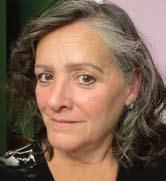
Magi Kapllani, Founder and CEO
Magi Dizdari Kapllani is an accomplished pianist dedicated to sharing her musical knowledge with the next generation. A prodigy, she has performed as a soloist across Europe and the U.S. and collaborated with renowned orchestras. In 2004, she founded DEA Music and Art Studio, which has grown from eight students to hundreds. Magi’s influence as an educator is profound, with her students winning international competitions and performing at prestigious venues.
Irina Zaviyalova, Director of Aquatics Programming & Operations

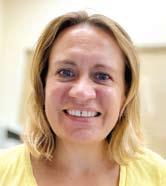
Irina Zaviyalova (formerly Vyguzova) is a former elite world-class athlete and two-time Olympic diver who serves as director of aquatics programming and operations at the Joan & Alan Bernikow JCC of Staten Island. Irina has extensive experience in coaching and management at both international and local levels. In her current role, she promotes community swim safety and wellness through aquatics programs for children and adults. She recently reinvigorated the JCC’s Swimming Academy, which brings quality swim instruction to Staten Island youth.
Ms. Zhang, Certified Mandarin Educator
Ms. Zhang is a certified Mandarin educator with a Master’s in Education and a Bachelor’s in Music. She has over 10 years of experience teaching children ages 3 through high school in neighborhoods across New York City, including the Upper West Side, Lower Manhattan, and Brooklyn. She is a mother of two and passionate about joyful, creative learning. She founded Bi’an Mandarin to offer immersive, culturally rich Mandarin education to families in Staten Island.

Tom Curry, Grand Master
Grand Master Tom Curry, a retired NYPD Intelligence Detective and Tactical Instructor, has taught families in Staten Island for over 30 years. Since beginning his training in 1971, he has fostered a fun, empowering environment for students of all ages, focusing on personal growth and confidence. A 9th Degree Black Belt, he has instructed law enforcement and led seminars nationwide. Join this growing family and experience the transformative benefits of martial arts training.

Eliza Fuentes, Manager of Instructors
Eliza Fuentes joined British Swim School as an instructor in February 2022 and was promoted to Manager of Instructors for Staten Island in May 2024. She has extensive training within British Swim School’s unique curriculum around Special Abilities, Adult Learning, and Water Safety Instruction. She is a passionate believer that all people should have the chance to learn to swim! In addition to working with British Swim, she also coaches rowing at the Urban Assembly Harbor School.

Priscillia
Lo, Owner
Priscillia Lo is the passionate owner of Mathnasium of Richmond, NY, where she brings her love for kids and years of tutoring experience to life. With over a decade of teaching and a background in Hospitality Management, she knows how to make learning math personal and fun. Priscillia is dedicated to helping kids build confidence and have fun with math. She believes our kids can change the world with the proper teaching methods and attitude.

Edmund Yu, Founder and Lead Teacher
Edmund Yu is a dynamic musician who has been involved in music education on Staten Island for more than 23 years. His teaching career began in 2002 when he launched Music and Method, a teaching studio specializing in piano. It has since grown to include classes in guitar, violin, voice, and woodwinds. Edmund is committed to serving Music and Method and establishing a foundation of music literacy for its students and community.


Vivek Galera, Director
Originally from India, Vivek arrived in the U.S. in 2000 to pursue his dream of becoming a technology professional. Growing up, he played cricket and soccer, and as a parent of a soccer player who plays in the professional national league, Vivek spends several hours every week on soccer fields with kids. His passion for soccer motivated him to make an impact on the young athletes of Staten Island.


30/45/60Minutes $195/Month





Jim Barton, Director

Jim Barton has served the Staten Island tennis community in many ways. He has managed three tennis clubs and was the director of tennis at the Richmond County Country Club. As a coach, he has overseen and trained several generations of students who became NCAA All-Americans and achieved high national and sectional rankings. Through the years, Jim has introduced thousands of Islanders to the game of tennis.
Richard Lyle, Owner
Born on Staten Island, Richard Lyle discovered his passion for gymnastics in Middle school. He was a collegiate gymnast, helping LIU win a North Atlantic Championship, and served as Assistant Women’s Varsity Coach. Richard also coached at Tottenville, where he was a varsity athlete and won two NYC team championships. He began coaching at Victory Gymnastics in 1987 and took over ownership in 2017. His joy is watching his students grow through the sport.


